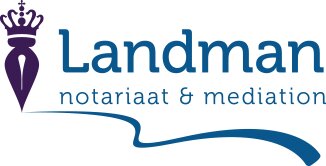Best Sanctions & Export Controls Lawyers in Netherlands
Share your needs with us, get contacted by law firms.
Free. Takes 2 min.
Or refine your search by selecting a city:
List of the best lawyers in Netherlands
Netherlands Sanctions & Export Controls Legal Articles
Browse our 1 legal article about Sanctions & Export Controls in Netherlands written by expert lawyers.
- EU Sanctions and Export Controls for Dutch Trading Firms
- Dutch companies must comply with both EU regulations and the Dutch Sanctions Act 1977, which imposes strict criminal and administrative penalties for violations. An Internal Compliance Program (ICP) is the primary legal defense for demonstrating due diligence to Dutch authorities during an audit or investigation. Dual-use goods require specific licenses... Read more →
About Sanctions & Export Controls Law in Netherlands
Sanctions and export controls are crucial legal frameworks that regulate the movement of goods, technology, and services across Dutch borders. In the Netherlands, these laws are enforced to uphold national security, prevent the proliferation of weapons, support foreign policy objectives, and meet obligations under international law. The Dutch government, alongside the European Union, imposes and enforces sanctions and export restrictions affecting individuals, companies, and financial transactions. Whether related to arms, dual-use items, or dealings with specific countries or entities, understanding and complying with these regulations is essential for businesses engaged in international trade.
Why You May Need a Lawyer
Legal advice in the field of sanctions and export controls can be critical due to the complexity and potential repercussions of non-compliance. Some common scenarios where expert legal help is recommended include:
- Determining whether your products or services are subject to Dutch, EU, or international export restrictions
- Assessing the risks and obligations when trading with countries, entities, or individuals targeted by sanctions
- Applying for export licenses or authorizations from Dutch authorities
- Responding to enforcement actions or investigations by regulators
- Drafting compliance programs and internal policies to prevent inadvertent breaches
- Addressing complexities in mergers and acquisitions involving sanctioned regions or companies
- Handling disputes or litigation arising from alleged violations
Given the severe penalties for breaches, legal counsel can help navigate these challenging regulations and protect your interests.
Local Laws Overview
Sanctions and export control laws in the Netherlands stem from a combination of national statutes, European Union regulations, and commitments under United Nations Security Council resolutions. Some key aspects include:
- The Dutch Sanctions Act (Sanctiewet 1977) forms the foundation for implementing international and EU sanctions and restricting exports.
- EU regulations often apply directly and immediately across all member states, including embargoes on specific countries or listings of sanctioned persons.
- The Central Import and Export Service (CDIU) is the primary body for issuing export licenses for strategic goods and technologies, including dual-use items.
- Controls extend to technical assistance, brokering services, and the transfer of software or intangible technology (for example, via digital means).
- Financial sanctions can restrict dealings with certain banks, businesses, or individuals.
- Strict record-keeping and reporting obligations apply, with non-compliance potentially resulting in substantial fines or criminal penalties.
- Companies must conduct due diligence and “know your customer” checks to prevent inadvertent breaches.
Frequently Asked Questions
What are economic sanctions and export controls?
Economic sanctions are restrictions imposed on countries, entities, or individuals to achieve political or security objectives. Export controls regulate the transfer of certain goods, technologies, and services, especially those that could have military use or affect security.
Who enforces sanctions and export controls in the Netherlands?
Sanctions are enforced jointly by the Dutch government (particularly the Ministry of Foreign Affairs), the Customs Authority, the Financial Intelligence Unit, and relevant agencies under EU oversight.
What goods are commonly subject to export controls?
Arms, military equipment, dual-use items (goods and technology with both civilian and military applications), high-tech electronics, and certain chemicals often require special authorization for export.
How can I check if a transaction is subject to sanctions?
You should consult the current EU and Dutch sanction lists, check the end use and end user, and, when in doubt, seek legal advice or obtain clarification from the relevant authority.
Do sanctions apply only to direct exports from the Netherlands?
Sanctions can also apply to indirect exports, re-exports, brokering, technical assistance, and sometimes to Dutch persons or companies operating abroad.
What are the consequences of violating sanctions or export control laws?
Consequences include administrative penalties, fines, revocation of licenses, reputational damage, and, in severe cases, criminal prosecution.
Can sanctions or export control restrictions be challenged or appealed?
Yes, in many cases administrative decisions on licenses or enforcement actions can be challenged legally. Legal representation is typically advisable.
Are there exceptions or exemptions in Dutch sanctions regulations?
Some exceptions exist, for example for humanitarian goods or under special circumstances set out in the relevant law or regulatory instrument. Applications for exemptions must be carefully prepared.
How often do sanction regulations change?
Sanction regimes change frequently in response to international developments, so regular monitoring and up-to-date legal advice are necessary.
What should I do if I suspect a breach of sanctions or export controls?
Immediately seek legal advice and consider reporting the issue to the relevant authority, as self-disclosure may mitigate penalties in some circumstances.
Additional Resources
If you are seeking more information or need to contact relevant authorities, the following resources can be helpful:
- Central Import and Export Service (CDIU) - for licensing and compliance guidance
- Dutch Customs Authority - for border and control issues
- Ministry of Foreign Affairs - for EU and international sanctions overviews
- Netherlands Enterprise Agency (RVO) - for business and trade compliance advice
- Financial Intelligence Unit - Netherlands - for financial sanctions questions
You may also find it useful to consult industry associations or legal professionals specialized in international trade compliance.
Next Steps
If you believe your business activities or personal circumstances could be affected by Dutch or EU sanctions and export controls, the following steps are recommended:
- Conduct an initial assessment to identify potential exposure to sanctions or export controls
- Collect and review all relevant documentation, such as contracts, correspondence, and end user information
- Consult with a lawyer experienced in sanctions and export controls to discuss your situation
- Ensure your compliance procedures and training are up to date to prevent future issues
- Maintain ongoing awareness of new sanctions developments through official government sources or regular legal updates
Taking these actions can help you avoid costly mistakes, maintain compliance, and address risks proactively. Should you need personalized legal help, reaching out to a local attorney with experience in this field is your best first step.
Lawzana helps you find the best lawyers and law firms in Netherlands through a curated and pre-screened list of qualified legal professionals. Our platform offers rankings and detailed profiles of attorneys and law firms, allowing you to compare based on practice areas, including Sanctions & Export Controls, experience, and client feedback.
Each profile includes a description of the firm's areas of practice, client reviews, team members and partners, year of establishment, spoken languages, office locations, contact information, social media presence, and any published articles or resources. Most firms on our platform speak English and are experienced in both local and international legal matters.
Get a quote from top-rated law firms in Netherlands — quickly, securely, and without unnecessary hassle.
Disclaimer:
The information provided on this page is for general informational purposes only and does not constitute legal advice. While we strive to ensure the accuracy and relevance of the content, legal information may change over time, and interpretations of the law can vary. You should always consult with a qualified legal professional for advice specific to your situation.
We disclaim all liability for actions taken or not taken based on the content of this page. If you believe any information is incorrect or outdated, please contact us, and we will review and update it where appropriate.
Browse sanctions & export controls law firms by city in Netherlands
Refine your search by selecting a city.
















